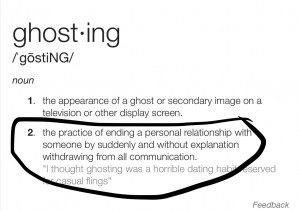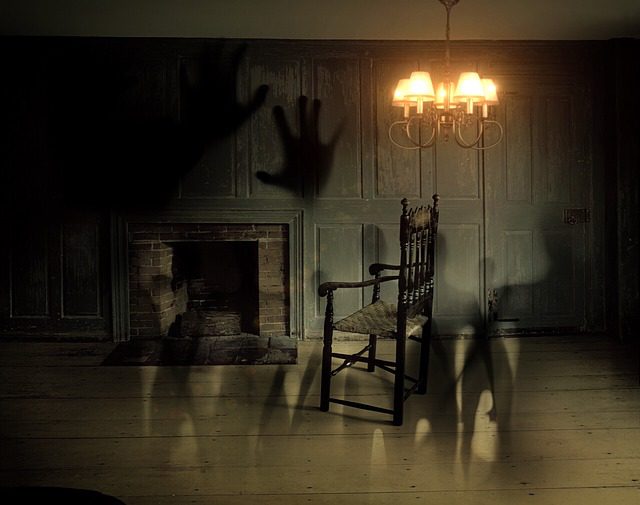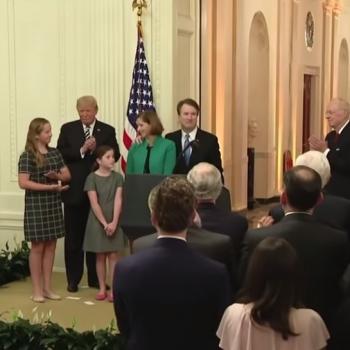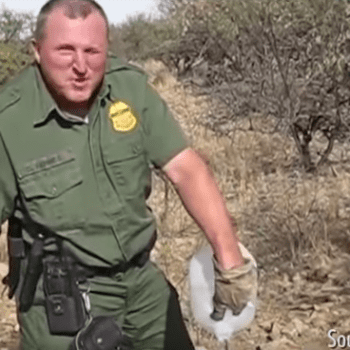I don’t think I believe in ghosts– I suppose I’m open to the possibility, but never in my life have I seen an apparition of anything ghost-like.
But while I don’t believe in ghosts, I have been “ghosted” and it remains one of the more painful and destructive experiences in my whole life.
Ghosting is something that can happen to anyone, in any social circle, or from any particular social group. However, we American Christians seem to have perfected this to a finally crafted art.
What is ghosting? You might not know the term, but you probably know the action: ghosting is when someone abruptly ends a friendship with limited or no explanation, and when they proceed to quickly disappear from your life.
For me, I was ghosted by my best friend– and my entire social circle quickly followed without saying a word.
My family and I went from having what felt like a strongly bonded group of people to do life with, to waking up one morning and discovering we were now alone, and had no friends or natural support system. Before we were ghosted, we’d meet on a weekly scheduled evening for “small group” where we’d share meals together, talk about life together, pray for one another, and where we did life together.
On Sundays we worshipped together. Between those scheduled times we’d all hang out, help one another with projects or needs, our kids would play with one another… we’d celebrate birthdays and anniversaries together. Life was good.
And then one day, the world stopped.
I was a teaching elder at our church, and made the critical error of pushing back on folks when they challenged my fitness for serving as an elder when it was said in a meeting, “We have a deep concern that you’re not truly the head over your wife.”
I made the error of saying we shouldn’t force two of our most committed, reliable, and spiritually mature community members to be re-baptized as a condition of being a full voting member of our church.
I made the error of advocating for a higher minimum wage in a television interview (which led to someone literally yelling and walking out of church).
I made the error of preaching a sermon on Matthew 5 and what it means to love our enemies– which got me cornered and rebuked by the other elders because the sermon was, ironically, “unloving” to preach to a bunch of gun owners, apparently.
I made the error of suggesting we should have a policy against people bringing weapons into our place of worship, prompting some folks to threaten leaving the church.
I made many “errors,” and the net result was the tension in our little group continued to increase until my best friend bailed instead of navigating conflict– taking the rest of our social circle with him. We went from texting countless times a day and spending individual, and family time together, to…. nothing.
Quiet. Silence. Distance. Nonexistence.
It was like a magician showed up in my life, covered everything with a blanket, and then with a whisk of the wand it all disappeared– leaving me just holding a blanket.
The damage wasn’t just something I suffered– I also had to navigate hard discussions with my then 12 year old daughter as to why she lost all her friends as well. I still wake up every morning and try to extend grace for the sin of ghosting, but the fact my daughter had her closest friends ghosted from her as well, is something I still struggle to forgive.
Ghosting can happen to anyone, but we Christians sure know how to do it well.
It’s as if for us, loving people simply because they are people made in the image of God is not enough. Instead, we become only willing to love people who we are in harmonious agreement with. As long as we are in agreement, the relationship is solid– but the minute one person begins to grow and shift on this belief or that one, we bail.
We ghost people. We disappear from their lives. We abandon them. We sever ties.
And we do it in the cruelest way possible: with silence.
Sometimes I have to pray like Jesus did and say, “Father, forgive them– because they don’t know what they do.” Because honestly, I don’t think they understand the damage they’ve done.
I don’t think they realize that on the day they ghosted my family, my daughter lost the only close friendships she had.
I don’t think they realize that on the day they ghosted me, it was the day that my marriage started to seriously unravel.
I don’t think they realize how painful it was to experience three failed adoptions in the months after their disappearance– driving home the reality that we had no one to grieve with us, no one to check in on us, and no one who cared if we survived as a family, or not. Every waking morning was a reminder that none of them actually gave a shit about us.
I don’t think they realize that years later, the idea of going to church again or having Christian friends I can trust, is outside of what would be healthy or plausible for me.
I don’t think they realize that when they see us at the department store and turn to walk away before we see them, they’re not quick enough.
I don’t think they realize that I never fully recovered from that life event, and that it still impacts me on a daily basis. I felt it yesterday, I feel it today, and I fear I’ll feel it tomorrow, too.
I don’t think they realize any of those things. Sadly I don’t think they care, either– because if they did, they would have attempted to bind up the wounds they inflicted without letting years go by and life fall apart.
And now, it’s too late– there can be forgiveness, but there will never, ever, be reconciliation. It’s done. It’s finished. There is no reversing the damage, and no returning to what once was.
The destruction from the practice of Christian Ghosting, quite honestly, is often irreparable.
…
For those of us who have tried to live out the Christian life while being open to allowing new information to shape and stretch what we believe, the reality is that at one time or another, we have friends who will ghost us.
Somehow, someway, too many Christian circles have failed to realize that we don’t have to be in complete agreement to be in a complete relationship.
And so, when theological agreement is not in harmony, there’s always at least one family who feels like some evil magician made their life disappear without notice or even a preemptive “abracadabra” to give us a bit of warning that life is about to change.
While we can’t control the actions of others, I do think we can do two things:
We can refuse to be the ones who do the ghosting.
And when it happens, we can practice praying, “Forgive them Father, for they don’t have the slightest effing’ clue as to the damage they’ve done.”
 Dr. Benjamin L. Corey is a public theologian and cultural anthropologist who is a two-time graduate of Gordon-Conwell Theological Seminary with graduate degrees in the fields of Theology and International Culture, and holds a doctorate in Intercultural Studies from Fuller Theological Seminary. He is also the author of the new book, Unafraid: Moving Beyond Fear-Based Faith, which is available wherever good books are sold. www.Unafraid-book.com.
Dr. Benjamin L. Corey is a public theologian and cultural anthropologist who is a two-time graduate of Gordon-Conwell Theological Seminary with graduate degrees in the fields of Theology and International Culture, and holds a doctorate in Intercultural Studies from Fuller Theological Seminary. He is also the author of the new book, Unafraid: Moving Beyond Fear-Based Faith, which is available wherever good books are sold. www.Unafraid-book.com.
Keep up to date with BLC! Visit his NEW site, and be sure to subscribe to subscribe to his new posts and updates, right here:
You can also follow BLC on Facebook:













